In a municipal wastewater treatment plant, the influent flow rate into a complete mixing activated sludge system is 50 L/sec, its solid concentration MLSS is 30 mg/L, and the BOD5 in the influent is 245 mg/L. The MLSS concentration at the bottom of the secondary clarifier is 15,000 mg/L and 10 mg/L at the top of the clarifier. The flow rate of returned activated sludge is 20 L/sec. a. What is the concentration of the MLSS in the activated sludge reactor (assuming that it is fully mixed and has constant concentration)? b. What is the activated sludge basin volume if the hydraulic retention time in the basin is 10 hours and the system is operated at the R/Q ratio given in the problem? c. If the cross section of the basin is 20 m² (perpendicular to the flow), how long the basin will be? d. The plant has 96% BOD5 removal. What is the effluent BOD5? e. The flowrate of the waste activated sludge (WAS) is 0.2 L/sec. How many solids (in kg) are wasted every day through the secondary clarifier effluent and how many through the WAS of the clarifier?
In a municipal wastewater treatment plant, the influent flow rate into a complete mixing activated sludge system is 50 L/sec, its solid concentration MLSS is 30 mg/L, and the BOD5 in the influent is 245 mg/L. The MLSS concentration at the bottom of the secondary clarifier is 15,000 mg/L and 10 mg/L at the top of the clarifier. The flow rate of returned activated sludge is 20 L/sec. a. What is the concentration of the MLSS in the activated sludge reactor (assuming that it is fully mixed and has constant concentration)? b. What is the activated sludge basin volume if the hydraulic retention time in the basin is 10 hours and the system is operated at the R/Q ratio given in the problem? c. If the cross section of the basin is 20 m² (perpendicular to the flow), how long the basin will be? d. The plant has 96% BOD5 removal. What is the effluent BOD5? e. The flowrate of the waste activated sludge (WAS) is 0.2 L/sec. How many solids (in kg) are wasted every day through the secondary clarifier effluent and how many through the WAS of the clarifier?
Sustainable Energy
2nd Edition
ISBN:9781337551663
Author:DUNLAP, Richard A.
Publisher:DUNLAP, Richard A.
Chapter14: Ocean Thermal Energy Conversion And Ocean Salinity Gradient Energy
Section: Chapter Questions
Problem 20P
Related questions
Question

Transcribed Image Text:In a municipal wastewater treatment plant, the influent flow rate into a
complete mixing activated sludge system is 50 L/sec, its solid concentration MLSS is
30 mg/L, and the BODs in the influent is 245 mg/L. The MLSS concentration at the
bottom of the secondary clarifier is 15,000 mg/L and 10 mg/L at the top of the
|clarifier. The flow rate of returned activated sludge is 20 L/sec.
a. What is the concentration of the MLSS in the activated sludge reactor (assuming
that it is fully mixed and has constant concentration)?
b. What is the activated sludge basin volume if the hydraulic retention time in the
basin is 10 hours and the system is operated at the R/Q ratio given in the
problem?
|c. If the cross section of the basin is 20 m² (perpendicular to the flow), how long the
basin will be?
d. The plant has 96% BOD5 removal. What is the effluent BOD5?
e. The flowrate of the waste activated sludge (WAS) is 0.2 L/sec. How many solids
(in kg) are wasted every day through the secondary clarifier effluent and how
many through the WAS of the clarifier?
Expert Solution
This question has been solved!
Explore an expertly crafted, step-by-step solution for a thorough understanding of key concepts.
This is a popular solution!
Trending now
This is a popular solution!
Step by step
Solved in 4 steps with 3 images

Knowledge Booster
Learn more about
Need a deep-dive on the concept behind this application? Look no further. Learn more about this topic, civil-engineering and related others by exploring similar questions and additional content below.Recommended textbooks for you

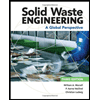
Solid Waste Engineering
Civil Engineering
ISBN:
9781305635203
Author:
Worrell, William A.
Publisher:
Cengage Learning,
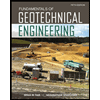
Fundamentals of Geotechnical Engineering (MindTap…
Civil Engineering
ISBN:
9781305635180
Author:
Braja M. Das, Nagaratnam Sivakugan
Publisher:
Cengage Learning


Solid Waste Engineering
Civil Engineering
ISBN:
9781305635203
Author:
Worrell, William A.
Publisher:
Cengage Learning,

Fundamentals of Geotechnical Engineering (MindTap…
Civil Engineering
ISBN:
9781305635180
Author:
Braja M. Das, Nagaratnam Sivakugan
Publisher:
Cengage Learning
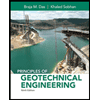
Principles of Geotechnical Engineering (MindTap C…
Civil Engineering
ISBN:
9781305970939
Author:
Braja M. Das, Khaled Sobhan
Publisher:
Cengage Learning
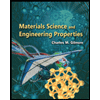
Materials Science And Engineering Properties
Civil Engineering
ISBN:
9781111988609
Author:
Charles Gilmore
Publisher:
Cengage Learning
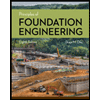
Principles of Foundation Engineering (MindTap Cou…
Civil Engineering
ISBN:
9781305081550
Author:
Braja M. Das
Publisher:
Cengage Learning